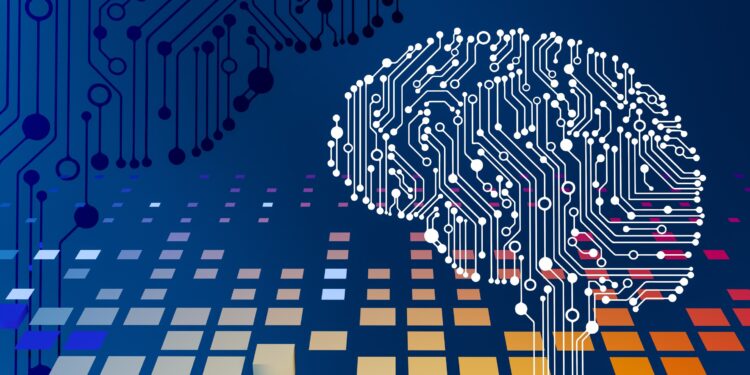Credit: Unsplash/CC0 Public domain
As AI – and the ethical debate surrounding it – accelerates, scientists say understanding consciousness is now more urgent than ever.
Researchers writing Frontiers of science warn that advances in AI and neurotechnology are outpacing our understanding of consciousness – with potentially serious ethical consequences.
They argue that explaining how consciousness arises – which could one day lead to scientific tests to detect it – is now an urgent scientific and ethical priority. Such an understanding would have major implications for AI, prenatal policy, animal welfare, medicine, mental health, law and emerging neurotechnologies such as brain-computer interfaces.
“The science of consciousness is no longer a purely philosophical quest. It has real implications for all facets of society and for understanding what it means to be human,” said lead author Professor Axel Cleeremans of the Université Libre de Bruxelles. “Understanding consciousness is one of the most important challenges in 21st century science, and it is now urgent because of advances in AI and other technologies.
“If we manage to create consciousness, even accidentally, it would raise immense ethical challenges and even existential risk,” Cleeremans added.
Sensitivity test
Consciousness – the state of awareness of our surroundings and ourselves – remains one of the deepest mysteries of science. Despite decades of research, there is still no consensus on how subjective experience arises from biological processes.
Although scientists have made progress in identifying the brain areas and neural processes involved in consciousness, there is still controversy over which areas and processes are necessary for consciousness and exactly how they contribute to it. Some even wonder if this is the right way to approach the challenge.
This new journal explores where the science of consciousness is today, where it might go next, and what might happen if humans succeed in understanding or even creating consciousness, whether in machines or in laboratory-developed brain-like systems, such as “brain organoids.”
The authors say that consciousness tests – evidence-based ways to judge whether a being or system is conscious – could help identify consciousness in patients with brain damage or dementia and determine when it arises in fetuses, animals, brain organoids or even AI.
While this would mark a major scientific breakthrough, they caution that it would also raise profound ethical and legal challenges about how to treat any system that turns out to be conscious.
“Advances in the sciences of consciousness will reshape the way we think about ourselves and our relationship with both artificial intelligence and the natural world,” said co-author Professor Anil Seth of the University of Sussex. “The question of consciousness is old, but it has never been more urgent than today.”
Broad implications
A better understanding of consciousness could:
- Transform medical care for unconscious patients once thought to be unconscious. Measures inspired by integrated information theory and global workspace theory have already revealed signs of consciousness in some people diagnosed with unresponsive arousal syndrome. Further advances could refine these tools for assessing consciousness in coma, advanced dementia, and anesthesia, and reshape how we approach treatment and end-of-life care.
- Guiding new therapies for mental health conditions such as depression, anxiety and schizophrenia, where understanding the biology of subjective experience can help bridge the gap between animal models and human emotion.
- Clarify our moral duty to animals by identifying which creatures and systems are sentient. This could affect how we conduct animal research, raise animals, consume animal products, and approach conservation. “Understanding the nature of consciousness in certain animals would transform how we treat them and the emerging biological systems synthetically generated by scientists,” said co-author Professor Liad Mudrik of Tel Aviv University.
- Reframe how we interpret the law by illuminating the conscious and unconscious processes involved in decision-making. A new understanding could challenge legal ideas such as mens rea – the “guilty mind” required to establish intent. As neuroscience reveals how much of our behavior stems from unconscious mechanisms, courts may need to reconsider where responsibility begins and ends.
- Shaping the development of neurotechnologies. Advances in AI, brain organoids, and brain-computer interfaces open the prospect of producing or modifying consciousness beyond biological life. While some suggest that computation alone could support awareness, others argue that biological factors are essential. “Even though ‘conscious AI’ is impossible to use with standard digital computers, AI that appears to be conscious raises many societal and ethical challenges,” Seth said.
The authors call for a coordinated, evidence-based approach to consciousness. For example, through adversarial collaborations, rival theories are pitted against each other in experiments co-designed by their proponents.
“We need more team science to break down theoretical silos and overcome existing biases and assumptions,” said co-author Professor Mudrik. “This step has the potential to advance the field.”
Researchers also recommend paying more attention to phenomenology (what consciousness looks like) to complement the study of what it does (its function).
“Cooperative efforts are essential to progress and to ensuring that society is prepared for the ethical, medical and technological consequences of understanding, and perhaps creating, consciousness,” Cleeremans said.
More information:
Science of consciousness: where are we, where are we going and if we get there? Frontiers of science (2025). DOI: 10.3389/fsci.2025.1546279
Quote: Scientists on ‘urgent’ quest to explain consciousness as AI accelerates (October 30, 2025) retrieved October 30, 2025 from
This document is subject to copyright. Except for fair use for private study or research purposes, no part may be reproduced without written permission. The content is provided for informational purposes only.



